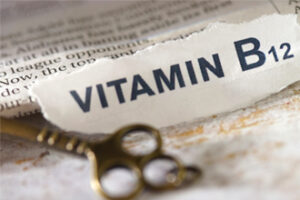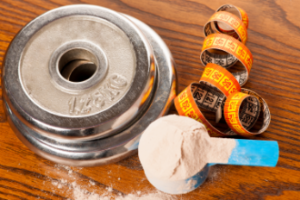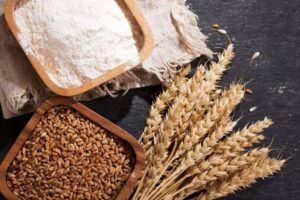‘Where do you get your protein from?’
If you’re vegetarian or vegan, it is likely this question is thrown at you pretty often.
Protein is perhaps one of the most obsessed about and monetized nutrient on the planet today, with a plethora of conflicting information and a plethora of protein packed products being hard sold.
Before you get sucked into the maze here are a few basic questions you need to ask.
- What is protein and what does it do in the body?
- How much protein do you really need?
- What is the critical difference between plant and animal sources of protein?
- How do you make sure you’re getting enough protein from your diet?
- How much is too much protein and what is protein deficiency ?
- What are the implications of excess protein ?
If these are some questions floating in your mind, read on.
WHAT IS PROTEIN
Protein is a complex material used for building, maintenance and repair for our tissues, bones, muscles, blood, organs, hair and nails, and it also gives structure to all of these!
Protein is also essential for our immune system and hormone function and our enzymes, because all these are made up of protein.
It is basically a macronutrient, but unlike other macronutrients such as carbohydrates and fat, which can be stored in the body, protein is not stored and needs to be consumed on a daily basis!
A simpler way to consume protein is to consume AMINO ACIDS as this is the form in which it is absorbed or used in our body. There are 21 amino acids in total, out of which our body can make 12, the remaining 9 (called essential amino acids) we need to get from our food!
MYTH 1
Plant sources do not contain all 9 essential amino acids.
As long as we’re eating a variety of wholesome, natural foods and getting enough calories and enough overall protein requirement, you should be getting all your essential amino acids. Also some believe that you need to combine certain foods in order to get your essential amino acids – this too is a myth!
MYTH 2
Animal protein is superior to plant protein.
The critical difference between the 2 is what else they bring along on the table apart from protein. When you’re having say an egg omlette, you’re not just getting protein, but a lot of others things as well that are packaged into the egg. Same goes for if you go in for a broccoli steak or quinoa pulao. Real foods are combinations, not isolates.
When you take animal based protein (from meat, chicken, fish, eggs, dairy products etc.) what you also get alongside are cholesterol, fat, more calories, hormones and zero fibre.
Also their digestion produces massive quantities of toxic residues- including putrefaction.
If you’re getting your protein from plant sources, say – broccoli, spinach or beans, you’re getting a bonus of calcium, vitamins and fibre at very low calories!
This is why you are so much better to get all your macros from plant sources – because along with those you also get a whole range of micros and fiber which is unmatched!
Even if you look at isolates or PROTEIN POWDERS – whey to pea protein for example – there is a difference because the amino acid profile of whey will pump up your IGF – insulin like growth factor (which can trigger an auto-immune response from the body), whereas pea protein will not!
In short plant protein is definitely safer and superior than animal protein.
MYTH 3
It is impossible to meet protein requirements from plant sources.
Lets look at how much protein we really need.
Healthy adults (apart from muscle builders, athletes, pregnant and lactating mothers) require an average of 8 – 9 grams per kg of body weight of protein.
A 60 kg adult will need approximately 48 grams of protein daily.
Here’s how you can meet your needs eating regular every day khana :-
- 2 cup cooked Beans/lentils – 30 gm
- 1 cup green peas/ any other protein rich food such as broccoli/dark leafy greens and an handful of peanuts or nuts – 8 gm
- 2 cups of whole grain (Wheat, rice or millets) – 6+gm
- Gourds (substitute with other seasonal vegetable) – 4 cups – 4 gm
- 500gms fruit – 5 gm
And the total amount of protein you end up with is – 53 gm
The bottom line is – all foods (unless highly processed and refined) contain some protein and if you’re eating some beans/lentils, vegetables and leafy greens, nuts and whole grains and getting enough calories from them, you’re likely to get enough protein.
Let’s look at some common PROTEIN RICH foods available to us
- Beans (chickpeas, black gram, kidney beans, soybean etc.)
- Lentils (moong, masoor, chana etc.)
- Amaranth
- Peanuts
- Almonds
- Peas
- Broccoli / Cauliflower
- Leafy Greens ( Spinach, Kale, Watercress, Pakchoy, Mustard Greens etc.)
- Soy Bean and Tofu
- Brown/Red Rice
- Whole Wheat
- Other whole grains and millets
SPROUTING – beans, lentils, grains, seeds or nuts greatly enhances the bio-availability of protein content, as it is converted into amino acids and hence also makes them a lot more easily digestible.Other super foods you could consider adding to your diet are
- Quinoa
- Seeds – Hemp, chia, pumpkin etc.
- Spirulina
MYTH 4
Protein deficiency is very common.
The protein food industry definitely wants you to believe this, but the truth is -protein deficiency is shockingly rare!
The potential scenarios for protein deficiency are –
1. You are calorie deficient and malnourished. This condition is called kwashiorkor and is commonly seen in malnourished children in remote area
2. Most of your diet consists of junk and processed foods.
Interestingly a lot of more people suffer from excess protein than deficiency!
MYTH 5
Higher protein intake is no problem.
Since protein takes long to and is difficult to digest, consuming high amounts can cause acidity and gastric issues.
Since protein cannot be stored in the body, any excess needs to be eliminated else it turns toxic. This is where the problem comes in. Excess protein, particularly animal protein leads to protein leakage in urine, and gives rise to what is called hyper-filteration – putting a lot of pressure on kidneys. This is the long run could lead to Gout, Uric Acid or kidney stones.
Unless you are working out and building muscles, or are pregnant and lactating, you do not want to focus on a high protein diet. In this case too, plant sources of protein are your cleaner and safer choice!
Did you find this article useful ?
Then check out some of our delicious plant based high protein recipes:
Amaranth Granola, Crunchy Beans Poriyal, Deconstructed Burrito Bowl, Vegan Dal Makhani, No-oil kadhi Pakodi, Tofu Bhurji, Vegan Omlette, Nut Butter, Besan Barfi, Peanut Butter Ice-Cream
 EAT PLANTS
EAT PLANTS MOVE DAILY
MOVE DAILY SLEEP MORE
SLEEP MORE



